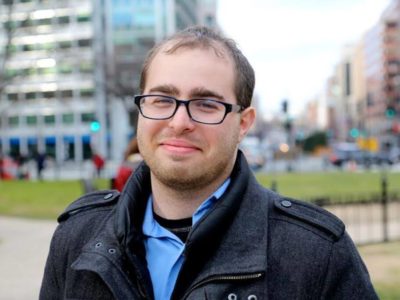If you believe in yourself and what you stand for, you can get far in life. After being encouraged by peers and other leaders on the University of Northern Iowa campus, Leila Masinovic decided to step out of her comfort zone and run for student class president. Throughout her student government journey, Leila learned many things about herself and those around her. Considering getting involved on your campus?
Read on to learn how Leila started making a difference at UNI.
Q: What are you studying at University of Northern Iowa and what are your post-graduation plans?
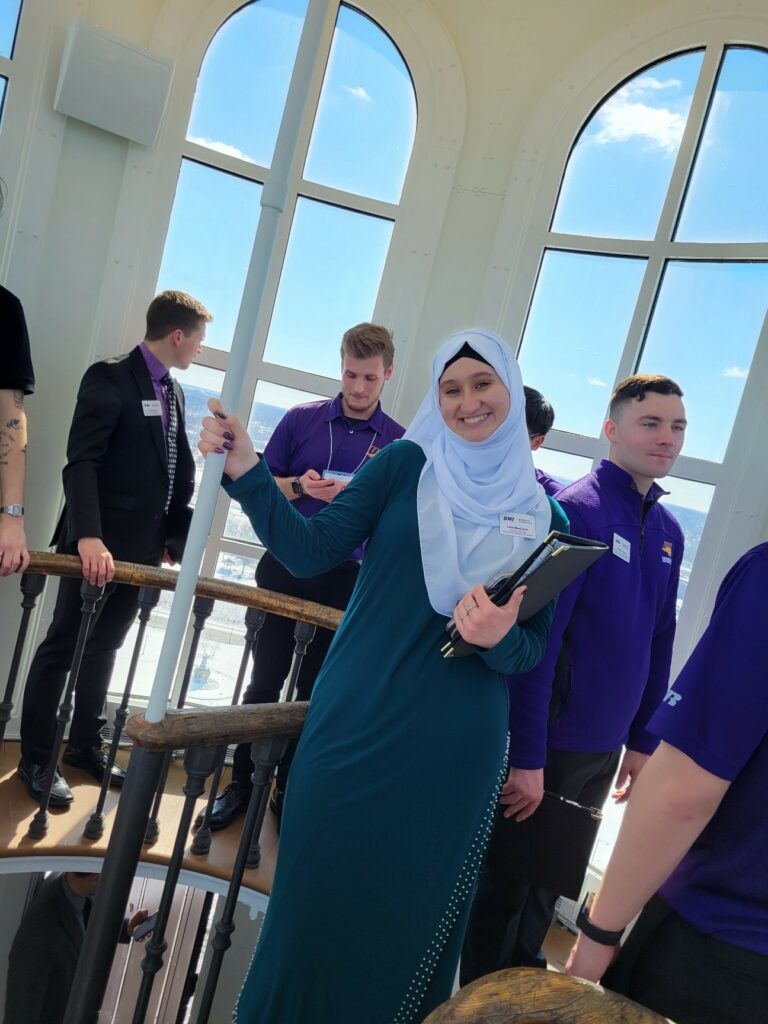
LM: “I’m studying biology, majoring in biology, with a duo minor in legal studies and criminology. My hopes are to go to medical school and become an anesthesiologist.”
Q: How were you involved in student government prior to becoming class president?
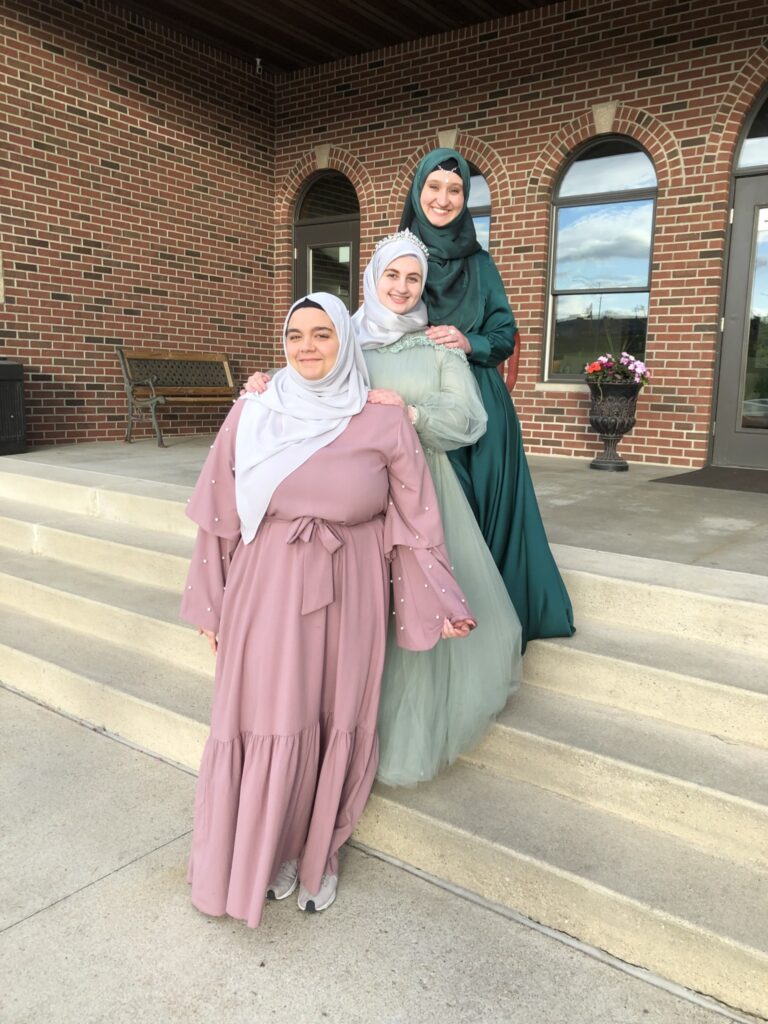
LM: “So, it was actually pretty recent to be honest. A lot of individuals usually begin their freshman or sophomore year. I ended up beginning, well I had to do a little speech for the Faculty Senate on religious observances and things like that. So, I did a little speech there with, it was not the previous president but two presidents ago, and she messaged me, she’s like, you know a little bit about this. Can you make a speech or talk to Faculty Senate and state your opinion and how you would be on the stance and things like that? At the time I was president of [the] Muslim Students Association. I was not affiliated with student government at all. So, I was kind of stepping into the role with no idea of what was happening. But I did the little speech and after that the Director of Diversity at the time and that current president recommended that I become a senator. It was very late in the year, so I ended up still applying and I got approved by the Senate to be a senator and I was probably a senator for a month, a month and a half. But that’s pretty much my reign as a senator.
Then later I decided I wanted to run as the Director of Diversity, which is a director position under the president and vice president, so I worked very closely with [the] upper cabinet. And I loved my job there and last year I decided that I was going to run for president because I didn’t want to kind of gatekeep the position. It was a really good learning experience, as well as such an eye-opening experience. So, to kind of hold that position from somebody else would not be what I want to do. I looked into other positions and things of that sort. I still wanted to be in upper cabinet, and I decided to go for president after my vice president actually came to me and asked me if I wanted run with him. So that was pretty much the journey and how I’m here.”
Q: Who or what inspired you to run for office?
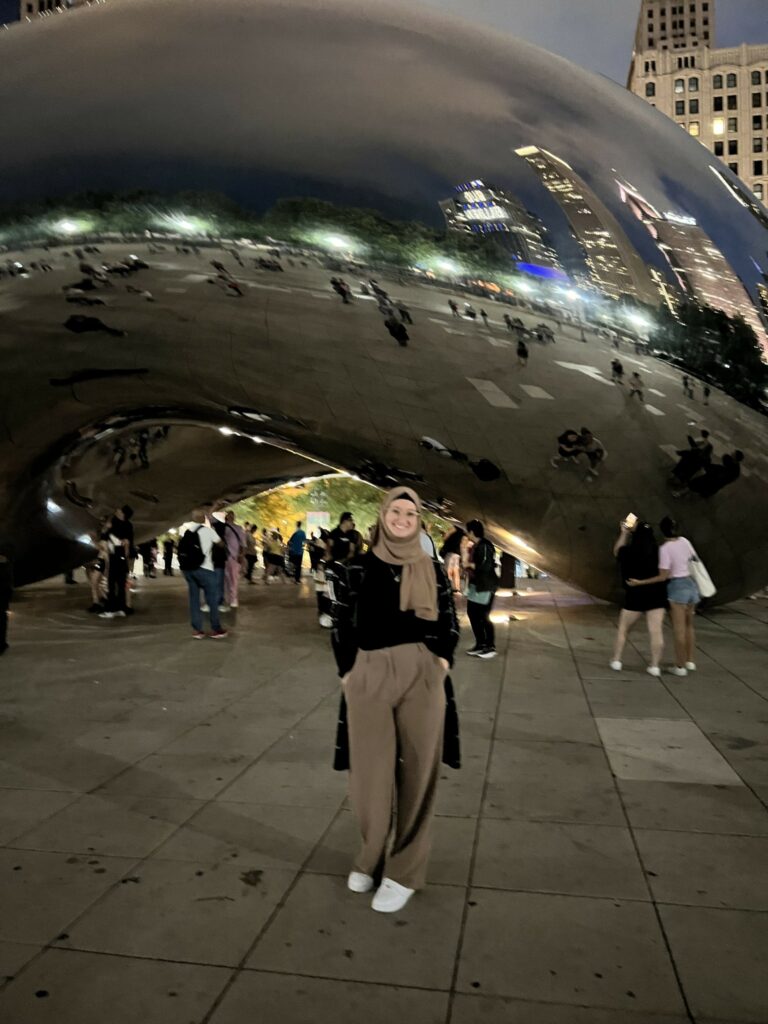
LM: “One of the people I would definitely say is my mom, believe it or not. She immigrated from Bosnia and Herzegovina because of a genocide, so I’m the first of the first gen to go to college and she made it very very clear that it’s very important to fight for the things you want to do and it’s very important to work hard. So, with that kind of mindset, I wanted to be involved and make a difference in the world. So obviously you got to start from a little lower position, not that it’s seen as lower, but something where you can get the gist of things. So, becoming the senator was basically like my steppingstone into this position that I’m in right now. I thought it was impossible and wow, it’s crazy. You think it’s impossible to become a senator, it’s not. You think it’s impossible to become Director of Diversity, it’s not. You think it’s impossible to become president, and it’s not. It’s all mindset and it’s all if you have a good intention and if you keep fighting for it, you’ll get there.
So, my mom made sure that I grew up very determined and that I would really fight for the things that I want in my life, so she is definitely one of the major reasons I went for it. And I think the previous two administrations and the past administration, their president and vice president, as well as the Director of Diversity, really put in my head you can do it. Like you don’t have to have permission from anybody else. Everyone around me has had some sort of impact on getting that mindset in me that I can do something, typically that I don’t necessarily see other people, other women that look like me, being in these positions. So, it meant a lot to me. Those words and things like that, it got me where I am today so I’m very grateful.”
Q: Can you describe the process you went through when running for office?
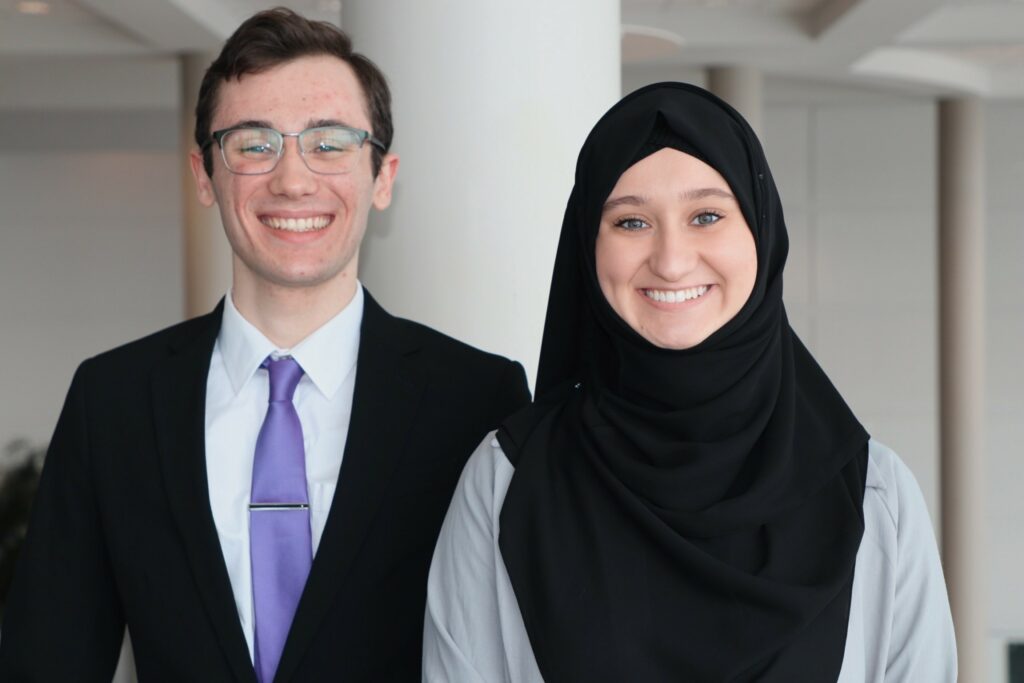
LM: “When you run for office here, you have to announce that you’re running, you have to have like a whole campaign in mind, you have to have the people that are going to be on your team that are going to help you post on social medias that are going to help you get the word out. With my institution we have to get a certain amount of signatures in a certain amount of time and that was very interesting because I am a very introverted person, so I only know a handful of people on campus. At least I did at the time. But my vice president is very extroverted and he’s a very good balance from what I am and how he is so it was a very good, kind of take a step back and you can see a big picture type of thing.
I owe it all to him because he went to one of the events on campus, and him being a very extroverted person, he was able to make friends really quickly and say, hey we’re running for office, these are our lists of initiatives and ideas. We would love your signature, if not it’s OK. But that’s how he went about it, and he got over, I think it was like over 60, 70 signatures in one day, one night. We ended up being fortunate, I guess you could say, to not have people against us running. So, it was kind of easy, but we still had to go through the rigorous deadlines and things of that sort. But yeah, then we went through the election process and then we got inaugurated in and that’s how it happened.”
Q: What are your goals and plans for the school year?
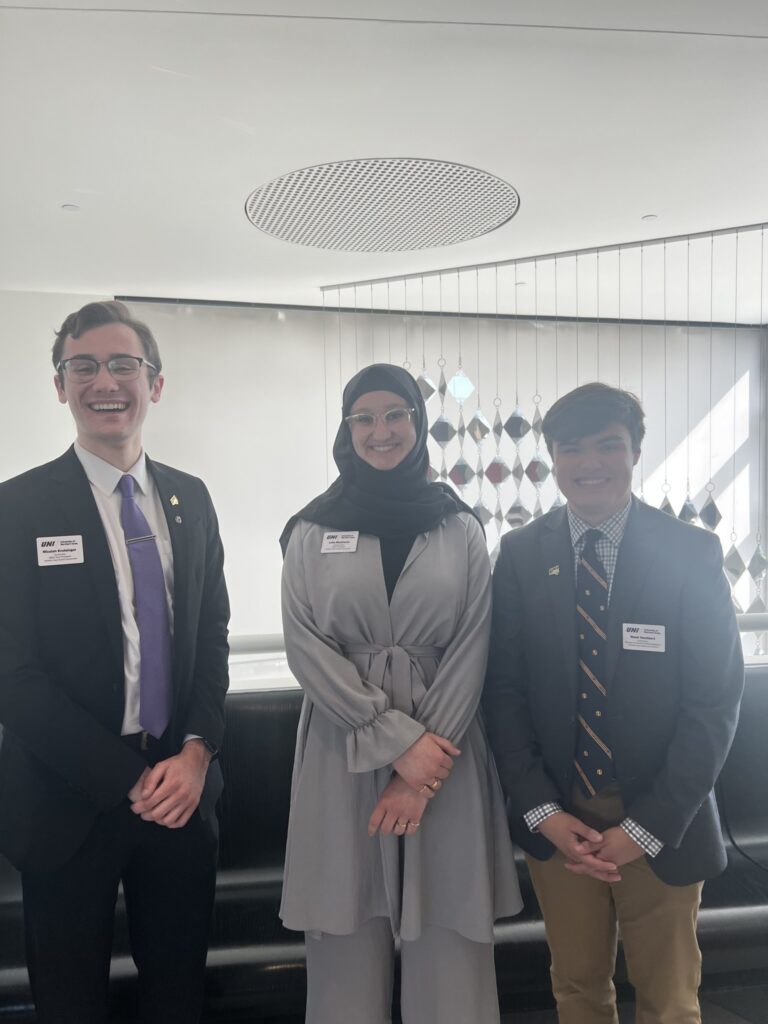
LM: “Oh man. Micaiah and I have a lot of plans and goals. A lot of it is to do with very consistent communications with legislation and things in that area. We want to make sure that while we are here, and even just on campus supporting our students as well as voicing their concerns to faculty and staff here, that we’re also making sure that those voices and concerns are being told down at the capitol, down where places where kind of the bigger picture of things is decided for this campus. So, it’s very important for me to kind of get to know a lot of people on campus and discuss problems that they have been facing. And if I can’t help them here on campus, I can try to help them on a statewide level talking to our legislators and things of that sort.
Though we have a lot of initiatives and goals, something that I’ve noticed very quickly is that a lot of things just happen out of nowhere and you have to kind of deal with those things first. And it’s a privilege to be kind of working with these things and trying to understand how it works first and then trying to find an answer that would be beneficial for everyone so that there’s a win-win situation. But other than that, it’s been very very interesting with how our initiatives and things of that sort can kind of tie in with what’s happening right now at the university.”
Q: What have you learned so far during your time as president?
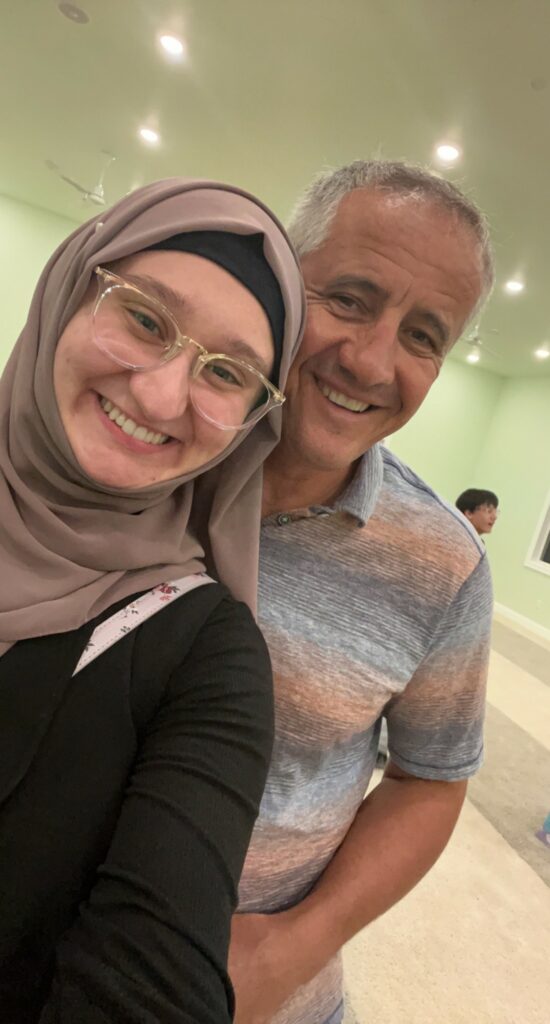
LM: “Something that I keep being reminded of is communication, how important that is, and how to be direct with what you’re saying but make sure you’re also mindful of how the other person will take that information. So, trying to find a balance of how do I make sure that they get the message without it seeming like it’s either a chore for me to do or something that they might not like? How do I get the proper information to them and make sure that they are still OK as a person and how do I explain it to them with their understanding of things of that sort? Another thing I have definitely learned is time management because something I struggled with my previous position as Director of Diversity was that I was so involved in my work that I would end up getting burnt out very very quickly. And I would come home super tired. I would go to work, and I’d be tired. I loved my job, and I loved doing everything, it was just the fact that I didn’t know how to balance work and school and my own personal life at the same time. So definitely time management.
And I think along with the communication part, the last thing that I would probably say is communication with family too. A lot of people in my family, especially since I’m first generation, they don’t necessarily know how college works. So, they think it’s very go to school, do your homework and come back and do like other house things. And I’m like, it doesn’t work like that. You have to sit down, you have to study, you have to find times to understand organic chemistry too and things of that sort. It’s not sit in class and you understand it right away type of thing. While I’m trying to learn how to better communicate with other people here on campus, it’s also very much to help with family as well.”
Q: What are some challenges you have come across so far as president, and how did you overcome them?
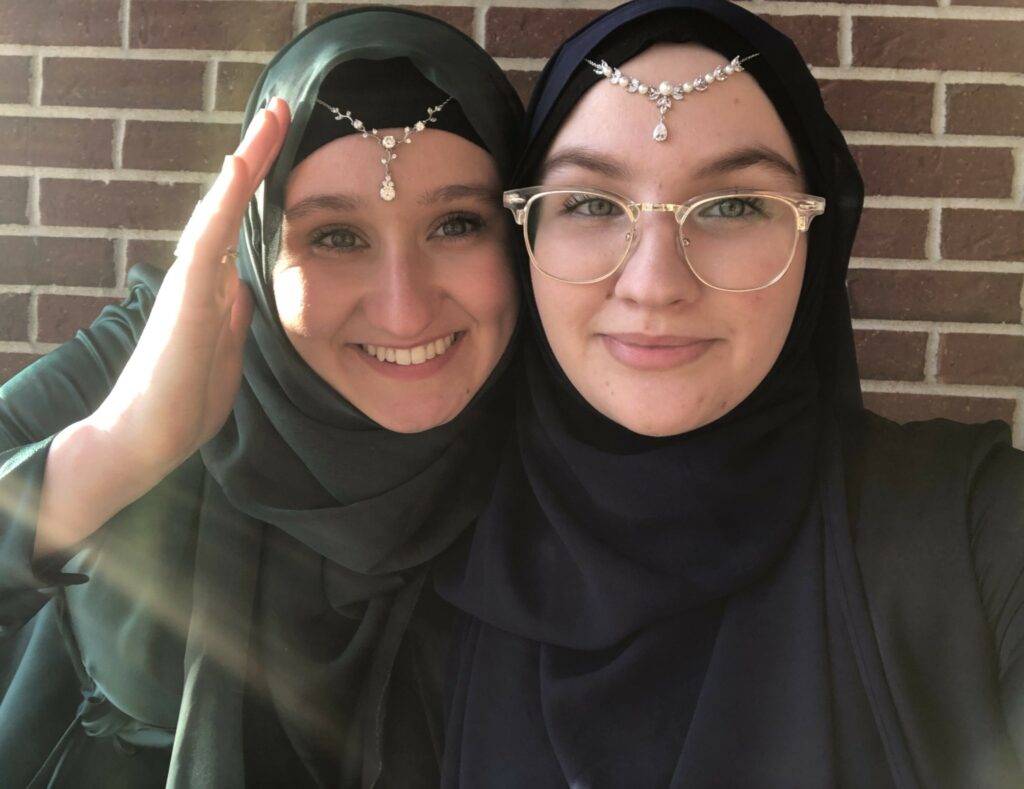
LM: “So, this ties back with the communication part. There was an incident where someone didn’t necessarily understand what was happening and they took it a different way than I saw, a different perspective. Which is completely fine, I mean that’s what happens in life when miscommunication happens. But it ended up creating a problem and people were starting to worry and things of that sort. But at the end of the day, I was like OK, we need to sit down and clear the air. We need to discuss what’s happening here and we need to make sure that there is a clear understanding of what’s going on. So again, trying to figure out the best way to communicate this information and important things without trying to kind of overstep boundaries. Without maybe giving the, not necessarily the wrong information, but communicating in a way that would not lead to the thought of a wrong idea or something like that. So yeah, being intentional with communication.”
Q: What has been your favorite aspects of being class president so far?
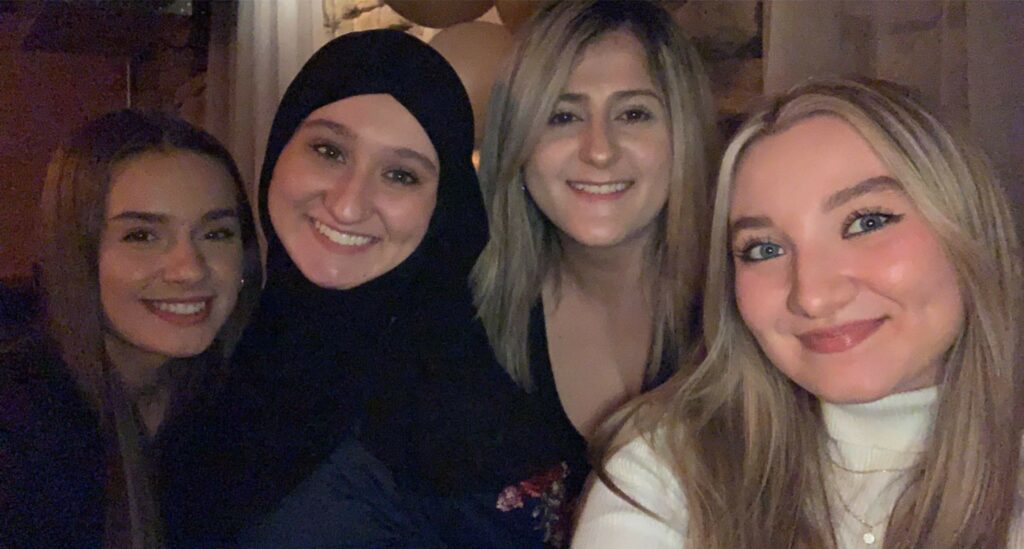
LM: “I would say maybe the people. Getting to know all the different individuals here on campus and getting a little glimpse of their story and how they got here. And seeing how different everybody else is. But while we’re here on campus, we all have the same goal of getting an education. I think that’s one of the most beautiful things somebody can give you, a piece of their life, like they trust you enough to share some personal things sometimes. Sometimes it’s just like I have a cat. And it’s like, oh my God I didn’t know that about you five minutes ago that’s so cool. But building these relationships, it’s one of the biggest things that I’m very happy about in this position. And the opportunities that it’s given me to not only create these bonds with people, but help others create bonds with other people that I think might help them in the future or with current things that they might have going on in their life. So, it’s like a little bridging type of thing. But I love it, it’s awesome.”
Q: If you could be remembered for one accomplishment during your time as President at University of Northern Iowa, what would that be?
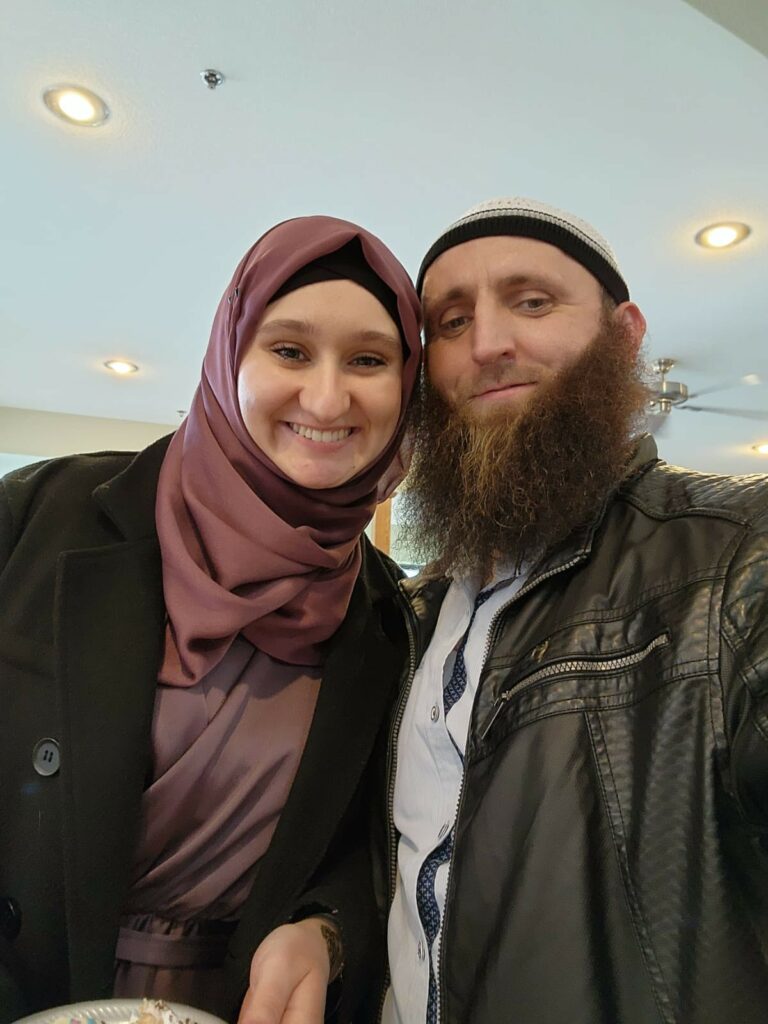
LM: “I think I would want to be remembered as the person who always tried to help, or always tried to find, not necessarily a common ground, but more so how to make sure that everybody ends up happy. Finding that balance between this is what this person wants, and this is what this other person wants. How do I come to a conclusion where both of these individuals are happy? How do I end up compromising in order to make sure that the goals and the things that the students need, or even between students and faculty, how do I end up being a good bridge or good person to go to to discuss important things that need to be discussed?”
Q: Do you have aspirations to run for any political positions after graduation?

LM: “Nope. I’d love to go to medical school, so I think if I did run for a political position it would take up a lot of my time that I wouldn’t have enough to study for the MCAT and things of that sort. If it comes to light that it might be a good place for me to be, then why not? But for now, there is no plan for it.”
How to Run for Office
3 Helpful Tips from Leila
Tip #1: “Make sure you have a good team. People that you trust, people that you know will get their job done. People that you know will help you, that believe in you. We were fortunate enough to have an amazing team. Everyone did their job; everyone was so helpful and kind. Even though I wasn’t very educated myself on how things work, they were very patient with me while they helped me learn. So, with that, they had the trust in me that even though I didn’t necessarily know all of the rules and all of everything I need to know, they were very trusting and very supportive of me.”
Tip #2: “It gets very stressful very quickly. We didn’t have anyone to run against us, but I know how stressful it was for us regardless just making sure everything was met, the deadlines were met, the signatures were met, all of these things. It’s really hard. So, finding that time to say it’s OK and pause for a second and breathe and be like whatever happens is going to happen and just go with it.”
Tip #3: “Enjoy it while you can. Because though it seems like sometimes it will drag on forever and it’s not ending, it goes by very quickly. And me, for example, I didn’t necessarily kind of say pause for a second and enjoy the time that I was in because I don’t think I’ll ever be able to say again I ran for a position or something like that, or I did a town hall or something like that. These are kind of once in a lifetime type of things and it’s very important to enjoy once you’re put in those things. Because though it brings on a lot of stress and a lot of fear, at the end of the day, regardless of if you get it or not, you ended up learning a bunch. And that should be the main goal of it all, to learn and to have fun while you’re doing it.”
How to Connect with Leila
Email: [email protected]
Instagram: @leilamasinovic
Twitter: @LeilaMasinovic
Disclaimer: This interview was cleaned up for clarity and succinctness.












